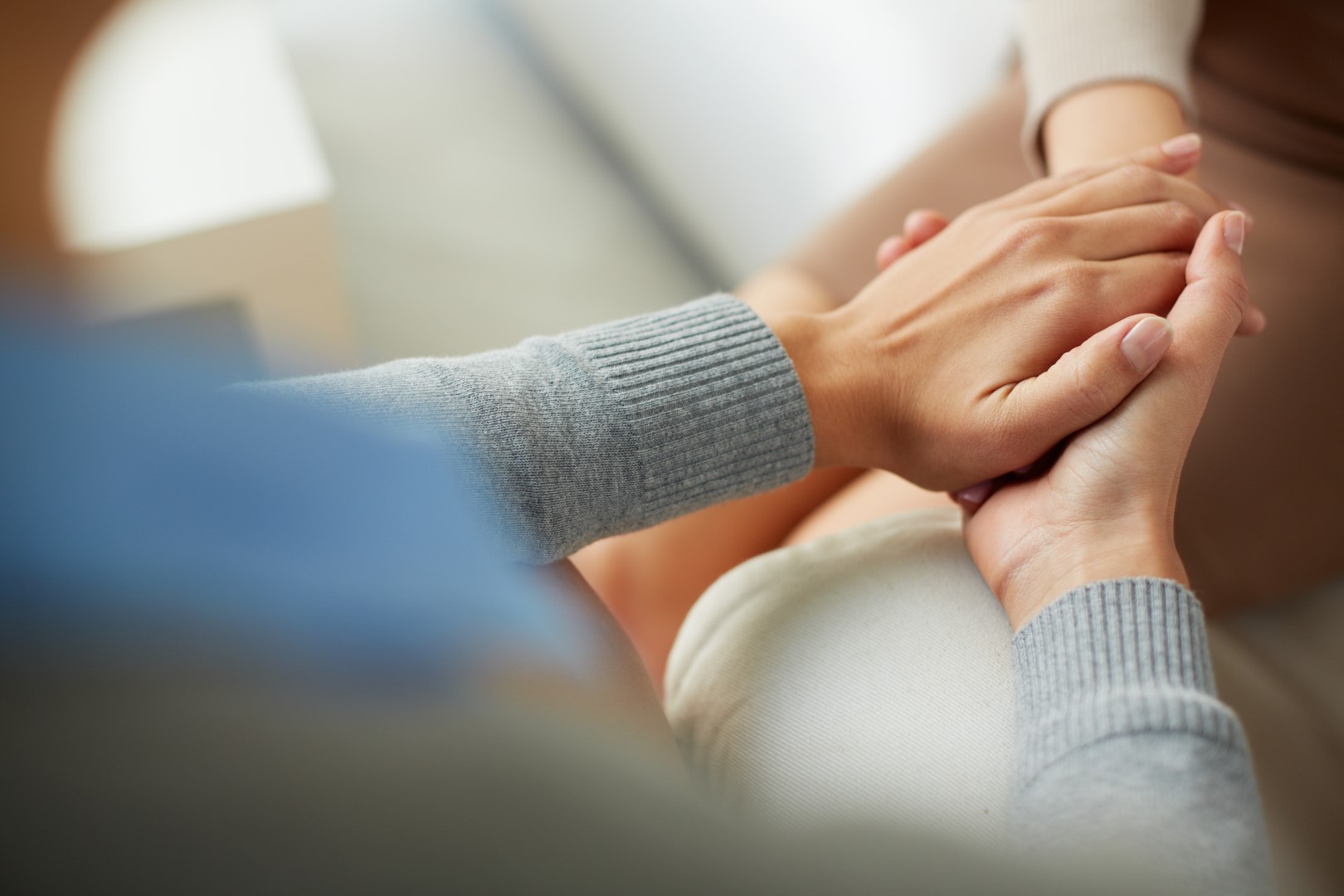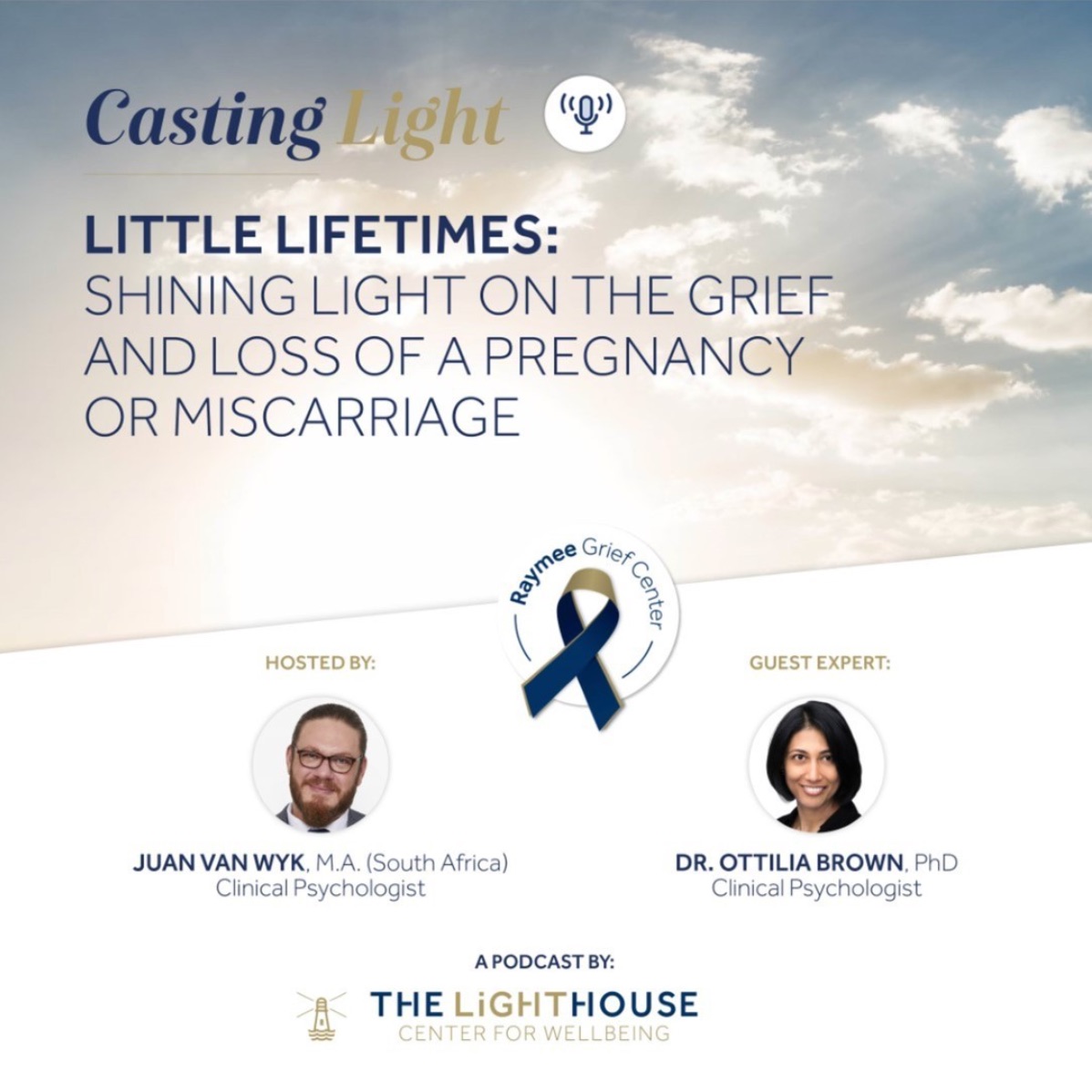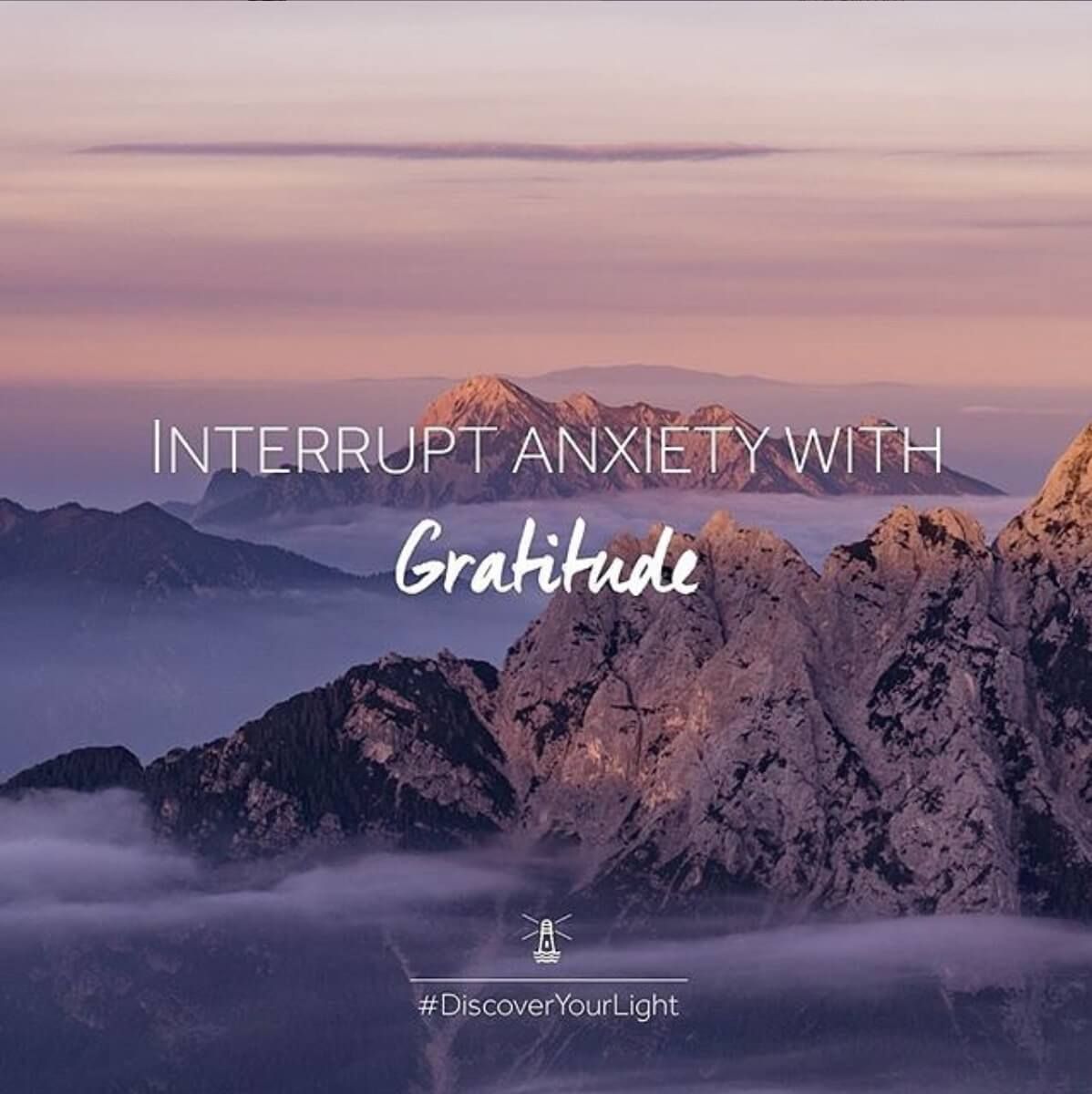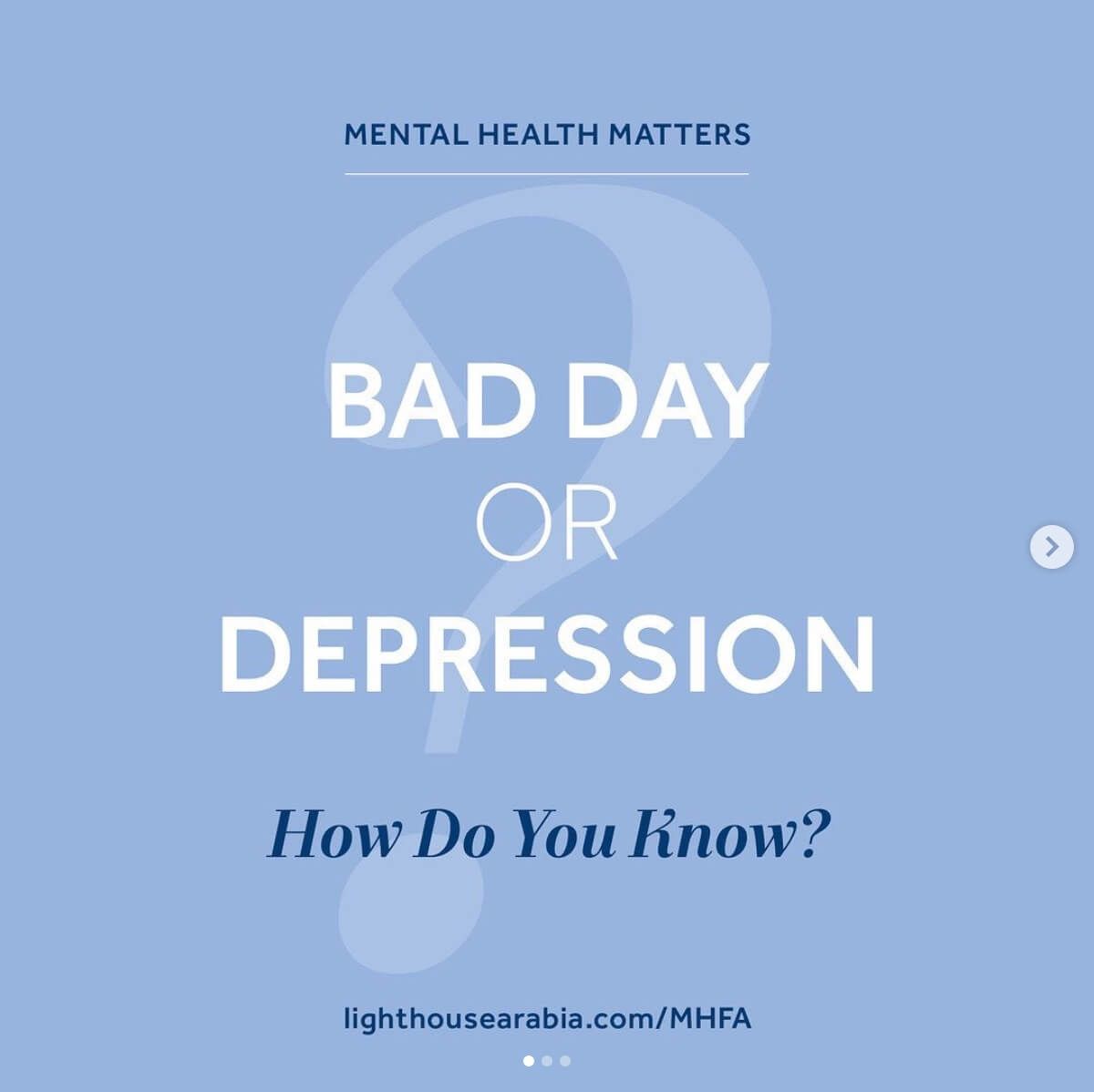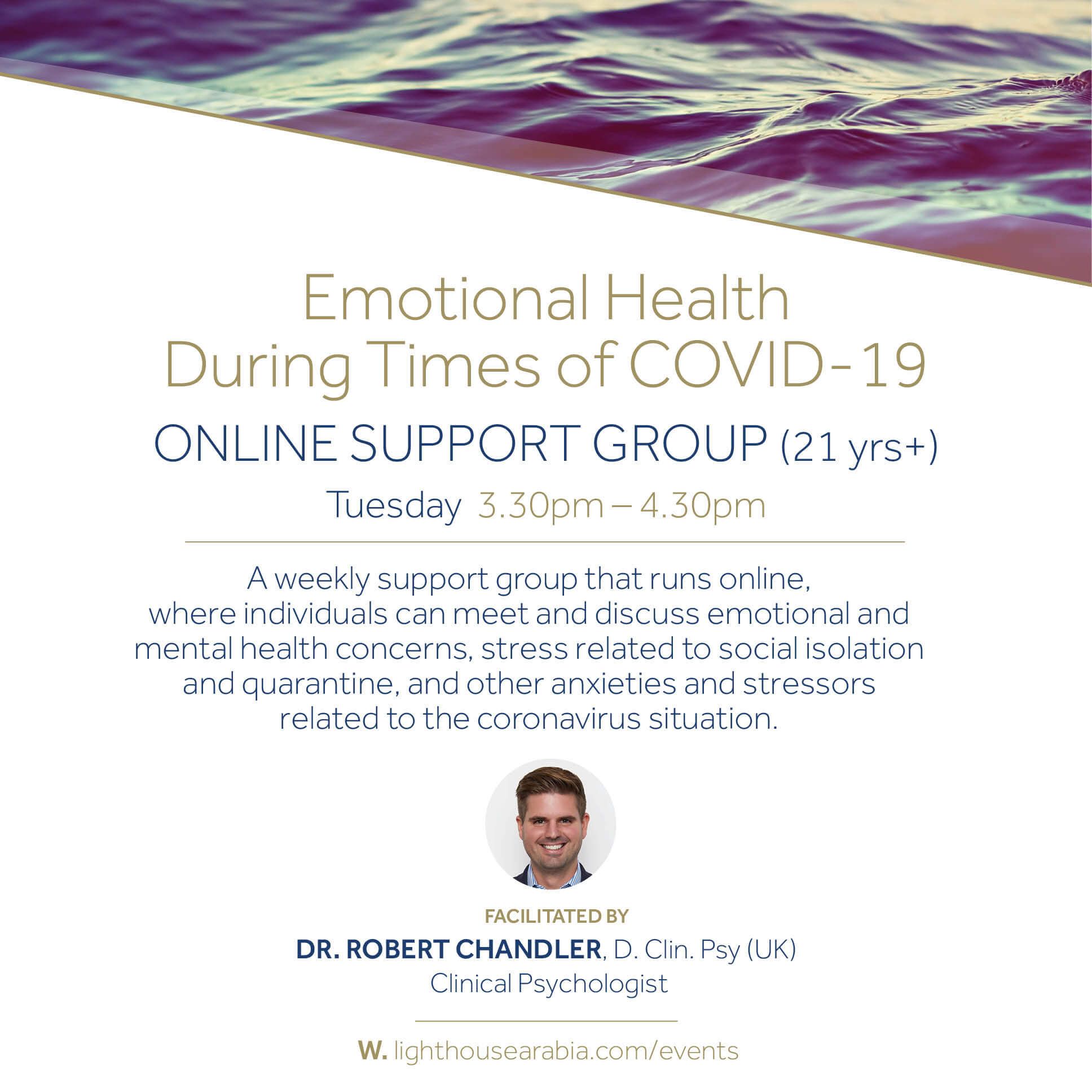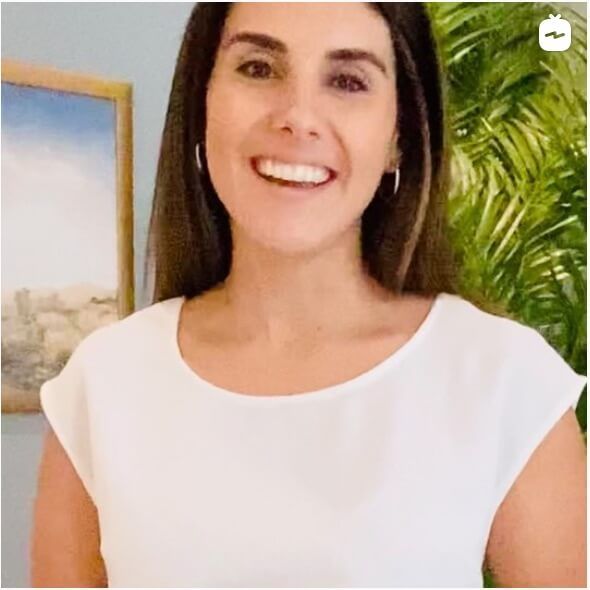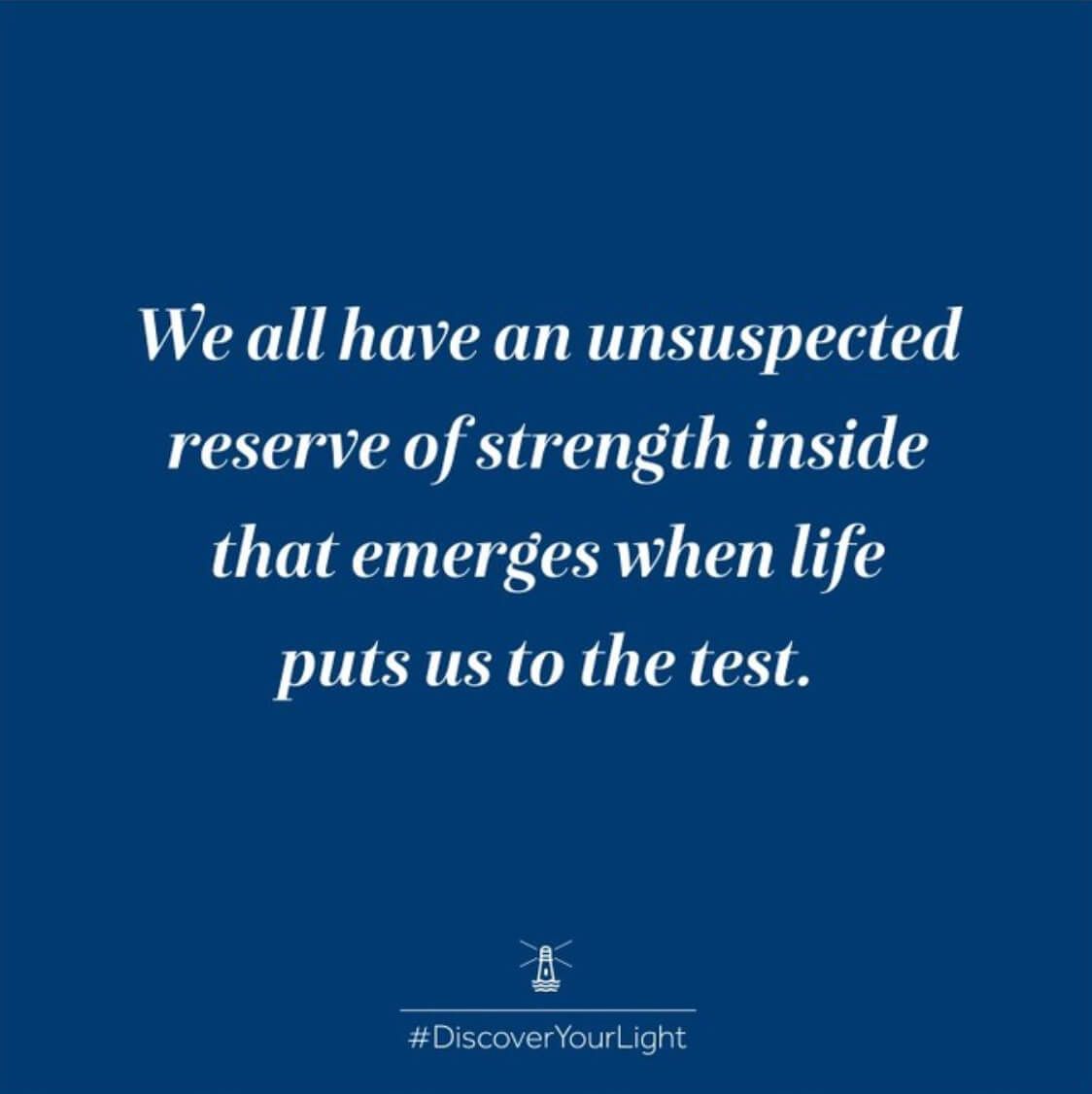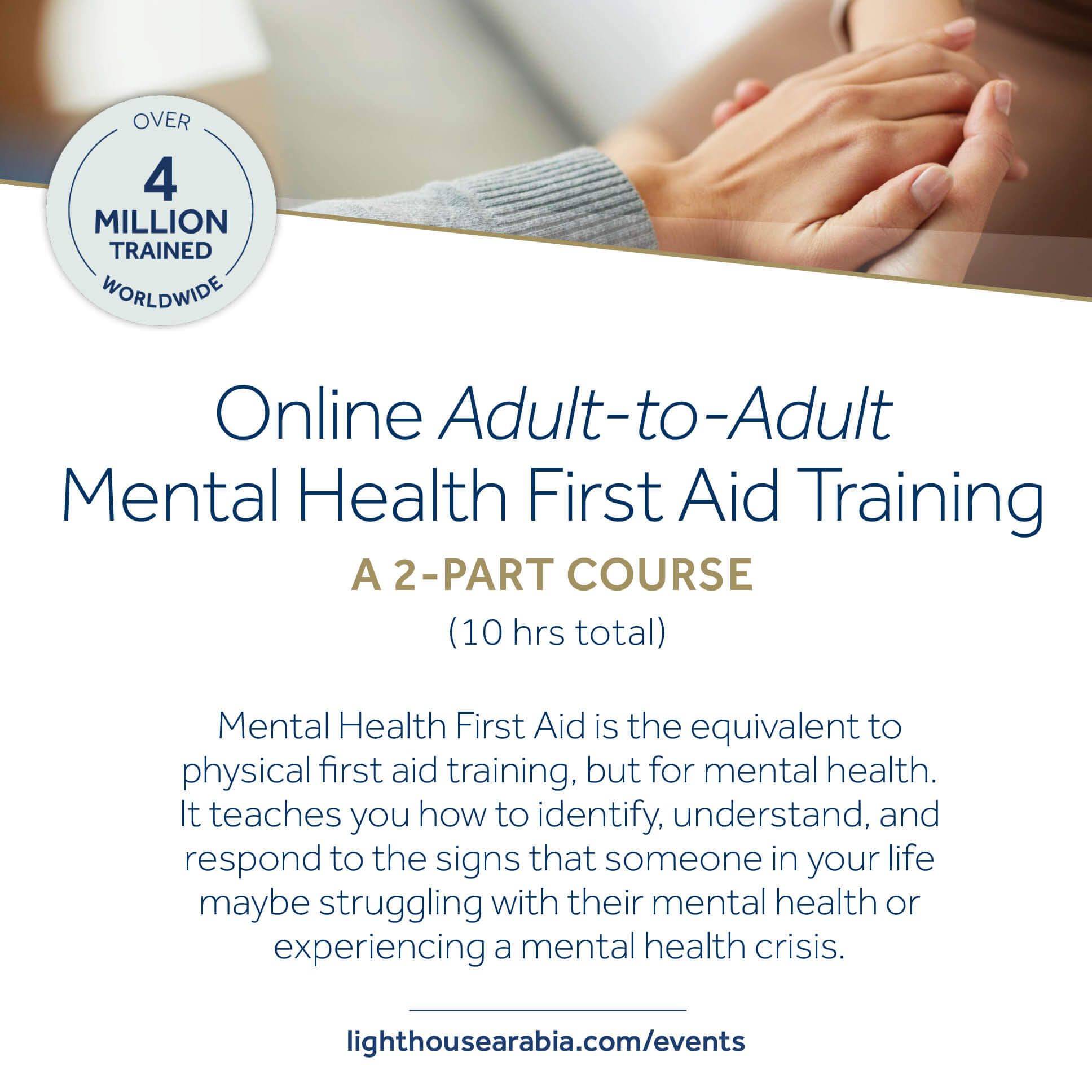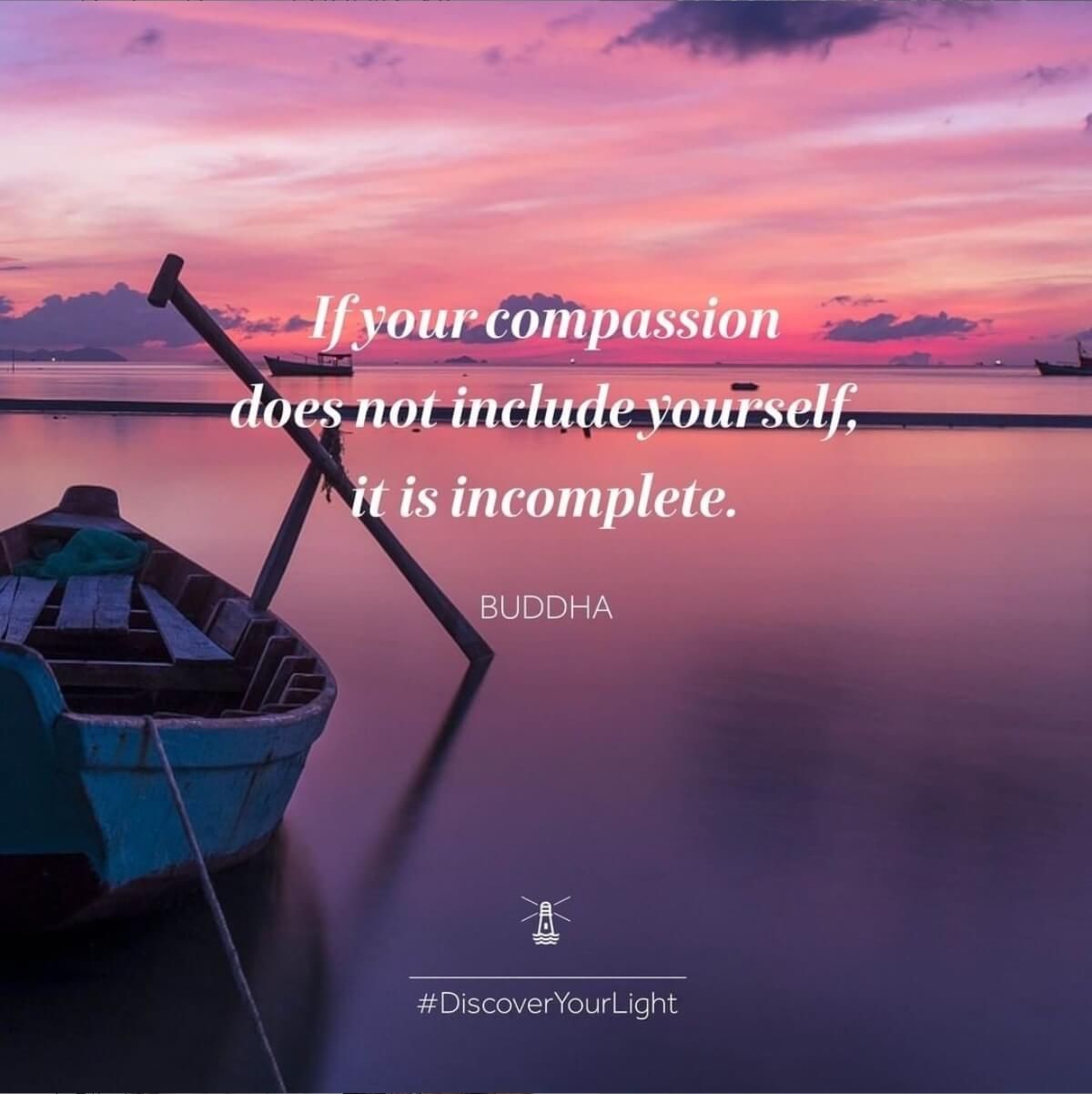Would you be able to identify the signs if a child or teenager was struggling with depression or anxiety? How would you respond if you knew a child or teen was suicidal or having a panic attack?
This 10-hour international evidence-based course is recognized in over 25 countries and is proven to be effective. It is ideal for adults interacting with adolescents (12 - 18 yrs old), who want to understand and support mental health difficulties in young people.
Mental Health First Aid is the equivalent to physical first-aid training, but for mental health. It is a powerful toolkit that teaches you how to recognize and respond to signs of mental illness. No prior knowledge of mental health is required for you to learn these skills. The LightHouse Arabia is the only accredited provider in the UAE.
This training is a 2-Part course and will run over two consecutive days. Participants are eligible to receive 8.5 CME/CPD credit points from DHA.
Date: Wed & Thu, 12th & 13th March
Timings: 9.30am – 2.30pm (GST; Dubai); 10 hours total over two days
Suitable for: Adults, ages 18 yrs+
Investment: 1,595 AED + 5% VAT
*Please contact us at: [email protected] following your registration/payment of the course fee of 1,595 AED + VAT .Your CEU credits will be indicated on your certificate of course completion.
Course Material & Certificate: Manual will be provided at the time of training and e-certificate will be emailed to all participants upon completion of the course.
THIS COURSE IS SUITABLE FOR:
· Parents
· Educators
· School Administrators
· Sports Coaches
· Healthcare providers (Doctors, nurses, administrators)
A MENTAL HEALTH FIRST AIDER LEARNS HOW TO RESPOND TO:
· Early warning signs of an emerging mental health issue
· An existing mental health illness
· Mental health crises
Participants will learn how to respond to youth struggling with:
· Depression
· Anxiety
· Psychosis
· Substance use problems
· Eating disorders
Mental Health crisis situations covered:
· Suicidal thoughts
· Non-suicidal self-injury (i.e. self-harm)
· Panic attacks
· Trauma
· Severe effects of drugs or alcohol
· Severe psychotic states
· Aggressive behaviors
Facilitated by

